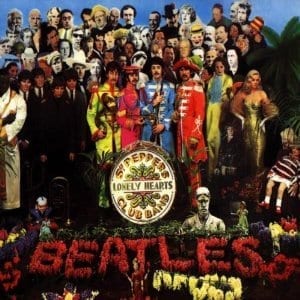
Just like the movie, researchers found that exposing the brain to short bursts of ECT could be used to erase sad memories.
Electroconvulsive (ECT) or electroshock therapy has had a bit of bad reputation as it involves zapping the brain with electric current via electrode pads placed on patients’ scalp. However, the therapy can be used to wipe-out unpleasant memories, a new research says.
The research, conducted by Marijn Kroes, at Radboud University Nijmegen in the Netherlands and colleagues, is a reminiscent of the plot in the movie- Eternal Sunshine of a Spotless Mind, Nature reported.
Just like the movie, researchers found that exposing the brain to short bursts of ECT could be used to erase sad memories.
Using electrical stimulation to treat depression and treat mental disorders isn’t a new idea. Donald Lewis and his colleagues published a study in 1968 that claimed memories can be erased (at least in rats) using electric shocks.
A report published last year in Nature Neuroscience on deep-brain stimulation (DBS) treatment for depression had also found this treatment effective in helping people fight the condition. Another study, conducted by researchers in U.S. and Brazil had found that zapping the brain with electric current could be used to treat depression.
Disrupting Memory
The research rests in the idea that memories aren’t permanent and that the brain constantly takes them out of ‘storage box’ and reconsolidates them.
The phenomenon is quite similar to the ‘telephone game,‘ where people take turns to whisper a message in next person’s ears. By the time the message reaches the last person, it is drastically altered.
The present study was conducted on 42 people who were prescribed ECT for major depression. Researchers showed all patients two slide-shows; one of a car accident and the other of physical assault.
Next, researchers asked the patients to recall events from one of the slide-shows. Patients’ were then given ECT.
A day later, participants were asked to fill a questionnaire about the two events showed in the slide-shows. Researchers found that patients’ memory, of the event that they had recalled, was hazy while the unrecalled memory was still vivid.
“Our results provide evidence for reconsolidation of emotional episodic memories in humans,” researchers wrote.
The Latest on: Shock Therapy
[google_news title=”” keyword=”Shock Therapy” num_posts=”10″ blurb_length=”0″ show_thumb=”left”]
via Google News
The Latest on: Shock Therapy
- ITV Coronation Street couple torn apart after shock betrayal and horror collapseon April 30, 2024 at 2:33 am
Coronation Street spoilers reveal a family is left in turmoil as one teen collapses in a drug twist, before one character commits a devastating betrayal against their partner ...
- BBC EastEnders favourite's death 'sealed' in sad scenes after shock health diagnosison April 30, 2024 at 1:25 am
EastEnders airs worrying scenes on the BBC soap next week, as a character learns some health news and is told they could die if he doesn't change his ways ...
- Howard Stern’s spineless kiss-up to Biden is a new low for the shock jock’s edgy reputationon April 29, 2024 at 5:13 pm
Stern used to hold guest’s feet to the fire. But with Biden, there was no talk of the border crisis, antisemitism on college campuses or nosebleed inflation.
- Hollyoaks death fears and Emmerdale pregnancy shock confirmed in 10 new soap spoilerson April 29, 2024 at 12:00 am
Dawn rushes Evan to A&E where he’s taken for blood tests, with doctors informing both she and Billy that their child is very sick. Will and Kim rush to the hospital to be with them and, soon, the ...
- Celebrities Quietly Paying Huge Amounts for Anti-Aging Stem Cell Therapy That May Cause Gruesome Side Effectson April 27, 2024 at 6:31 am
Age is just a number. Or, in the era of immortality obsessed elites, it's just the number of bizarre, supposedly youth-preserving stem cell treatments you can afford. One celebrity to recently come ...
- Kim Zolciak's Daughter In Shock Over Latest Sick Cash Grabon April 24, 2024 at 6:14 pm
Kim Zolciak’s daughter, Ariana Biermann, is in shock over her mother’s latest sick cash grab. She has seen Kim do some... The post Kim Zolciak's Daughter In Shock Over Latest Sick Cash Grab appeared ...
- Argentina's Milei touts rare government surplus, argues 'shock' therapy is workingon April 22, 2024 at 6:02 pm
Argentine President Javier Milei boasted on Monday that his government is successfully taming profligate public spending, touting a rare first quarter surplus that he argues is key to improving ...
- Extracorporeal shockwave therapy improves quality of life in patients with claudication: JAMAon April 18, 2024 at 6:15 pm
UK: A randomized clinical trial has shown that extracorporeal shockwave therapy (ESWT) may be considered a safe and effective alternative therapy for patients with intermittent lower limb claudication ...
- Shockwave Therapy Market Report Introduction and Overview, Industry Chain Analysis, Segmentation and Regions, Forecast to 2032on April 18, 2024 at 2:14 pm
Shockwave Therapy Market is valued approximately USD 2.09 billion in 2021 and is anticipated to grow with a healthy growth rate of more than 5.78% over the forecast period 2022-2029. Shockwave Therapy ...
- Olivia Munn Recalls ‘Shock’ of Seeing Her Body After Having a Double Mastectomyon April 17, 2024 at 10:51 am
Olivia Munn recalled the ‘shock’ she felt after seeing her body for the first time after undergoing a double mastectomy in May 2023 ...
via Bing News









